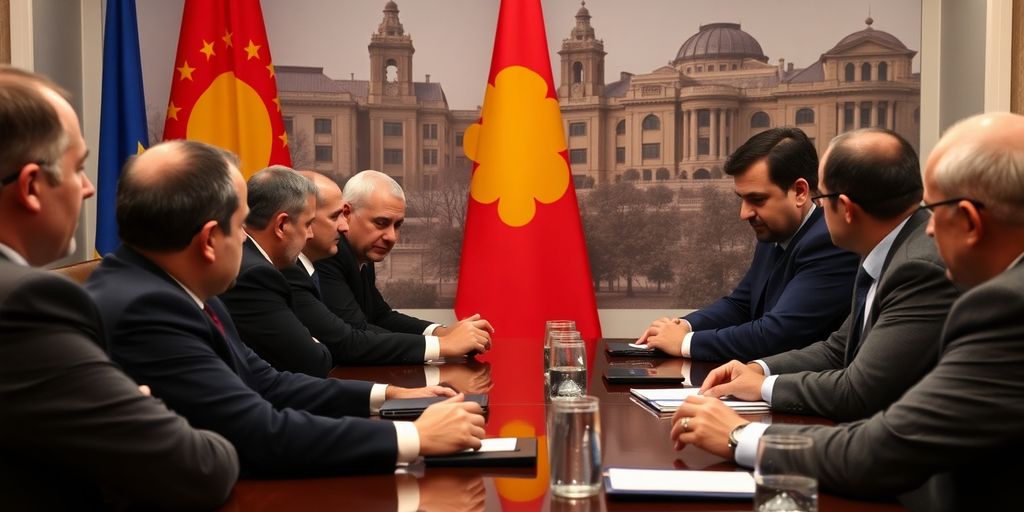In a significant political development in Kosovo, Bedri Hamza, the candidate for prime minister from the Democratic Party of Kosovo (PDK), has initiated coalition talks with opposition parties, including the Democratic League of Kosovo (LDK) and the Alliance for the Future of Kosovo (AAK-N). The primary goal of these discussions is to form a coalition that would prevent the current Prime Minister Albin Kurti from securing another term in office.
Key Takeaways
- Bedri Hamza of PDK has announced coalition talks with LDK and AAK-N.
- The opposition aims to exclude PM Albin Kurti from a second term.
- Successful coalition formation could lead to a shift in Kosovo’s political landscape.
Background of the Political Landscape
The political environment in Kosovo has been marked by significant tensions and divisions, particularly between the ruling party, Vetëvendosje (Self-Determination Movement), led by Albin Kurti, and the opposition parties. Kurti’s administration has faced criticism over various issues, including governance, economic challenges, and relations with Serbia.
The PDK, once the dominant party in Kosovo, has been working to regain its influence after losing power in recent elections. The coalition talks initiated by Hamza signal a strategic move to consolidate opposition forces against Kurti’s government.
The Coalition Dynamics
The proposed coalition between PDK, LDK, and AAK-N is seen as a critical step in reshaping Kosovo’s political future. Here are some key points regarding the coalition dynamics:
- Shared Goals: The opposition parties share a common objective of unseating Kurti, which could unify their efforts despite previous rivalries.
- Political Strategy: By forming a coalition, the opposition aims to present a stronger front in the upcoming elections, potentially increasing their chances of success.
- Public Sentiment: The coalition’s success may depend on public sentiment towards Kurti’s administration, particularly regarding economic performance and governance.
Potential Implications of Coalition Success
If the coalition talks succeed, several implications could arise:
- Change in Leadership: A new prime minister could lead to a shift in policies, particularly regarding economic reforms and foreign relations.
- Impact on Governance: A coalition government may bring different perspectives and approaches to governance, potentially leading to more collaborative decision-making.
- Future Elections: The success of this coalition could set a precedent for future political alliances in Kosovo, influencing the electoral landscape for years to come.
Conclusion
The initiation of coalition talks by Bedri Hamza marks a pivotal moment in Kosovo’s political scene. As the opposition seeks to unite against PM Albin Kurti, the outcome of these discussions could significantly alter the trajectory of governance in the country. With the potential for a new coalition government, Kosovo’s political future remains uncertain yet full of possibilities.






